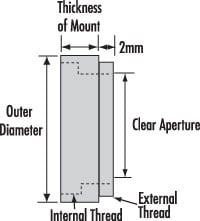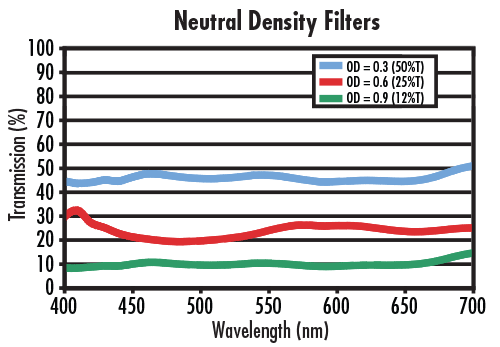
Mounted Absorptive Neutral Density (ND) Filters appear gray in color and reduce the amount of light reaching the camera's sensor. Since the transmission value only varies over a small percentage in the visible, there is no effect on color balance. Instead of just stopping down the lens aperture due to high light levels, ND filters allow for wider apertures which can be used to decrease the depth of field. This allows the important information to be separated from the background. Mounted Absorptive Neutral Density (ND) Filters, compared to polarizing filters, are ideal for overall light reduction in cases of extreme light intensity. By stacking filters, it is possible to achieve other Optical Density (OD) values. All mounted filters can be threaded together with identical male and female threads on each mount. Optical Density exhibits an additive relationship; for example, stacking filters with OD values of 0.6 and 0.9 yields a resultant density of 1.5. The Optical Density (OD) is related to the transmission by the following equation: T = 10-D x 100 = percent transmission.


or view regional numbers
QUOTE TOOL
enter stock numbers to begin
Copyright 2024, Edmund Optics Singapore Pte. Ltd, 18 Woodlands Loop #04-00, Singapore 738100
California Consumer Privacy Acts (CCPA): Do Not Sell or Share My Personal Information
California Transparency in Supply Chains Act